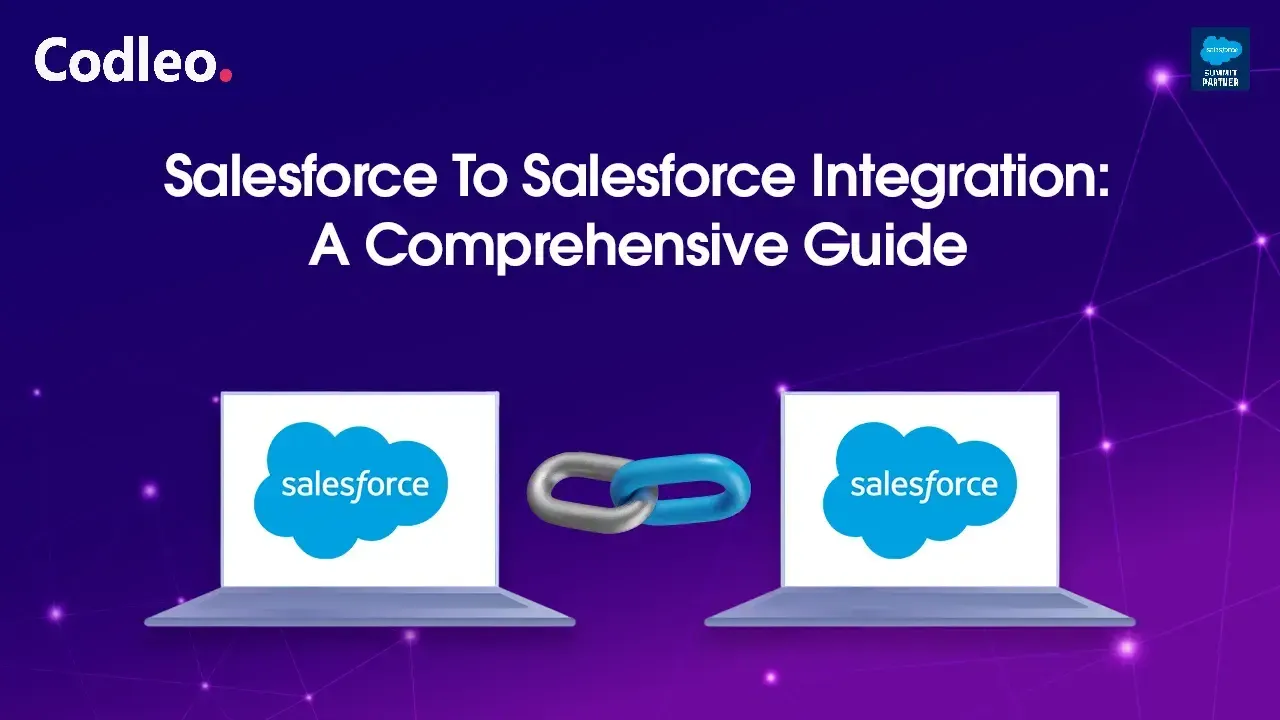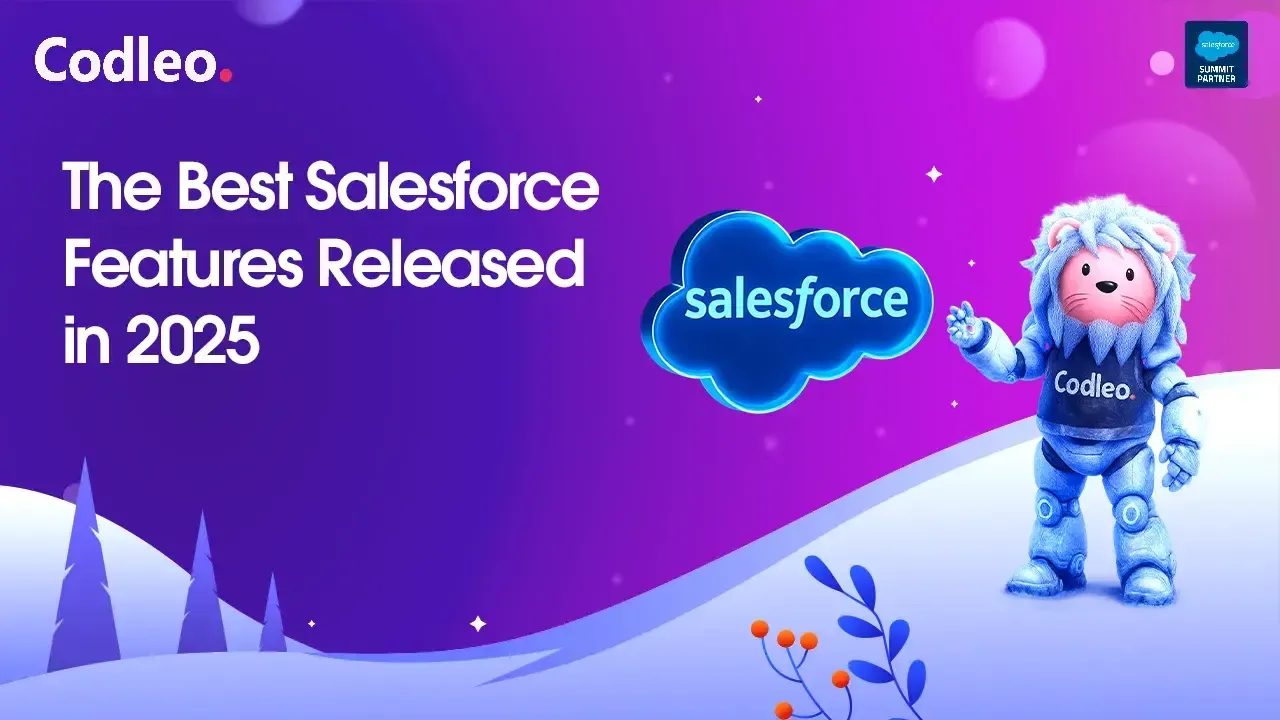Publish date:
Salesforce Cloud is an essential tool for today's businesses. It provides various cloud-based tools and services that help automate tasks. This platform improves how companies engage with customers and boosts productivity.
Salesforce Sales Cloud is a popular CRM platform from Salesforce.com. It’s designed for Sales, Marketing, and Service, and can be easily set up without needing extensive technical knowledge.
Sales Cloud CRM software helps organizations manage their sales effectively. It has features for tracking product details, such as price and Order ID; running marketing campaigns; managing customer contacts; sending emails; and handling orders and opportunities. This platform aims to improve sales team performance and boost sales. It is available as Software as a Service (SaaS), allowing users to access it via web browsers or mobile apps. It also supports teamwork with an active social feed.
Unlike traditional methods, Sales Cloud integrates client account information and social network data to assess sales leads and close deals quickly. It enhances revenue and profitability through advanced sales automation, helping users close transactions more effectively and drive growth.
Understanding Salesforce Sales Cloud
Many people new to Salesforce might think it only offers one product for managing customer relationships (CRM). In reality, Salesforce has various services and tools called "clouds." Each cloud is designed for different needs and functions.
Salesforce Sales Cloud is a CRM platform designed to enhance sales, marketing, and customer support for both B2B and B2C environments. You can fully customize the platform to bring all customer information together in one place. It helps you generate marketing leads, provide sales and customer support, analyze business data, and access thousands of apps on AppExchange.
Sales Cloud helps sales teams work better and faster. It includes essential tools and technologies that improve their efficiency. Key features are:
-
Lead Management: Manage and track leads seamlessly.
-
Pipeline Tracking: Monitor and manage your sales pipeline.
-
Forecasting Tools: Predict sales outcomes with advanced tools.
-
AI Insights: Gain valuable insights from AI to support managers.
-
Coaching Tools: Help managers guide their teams more effectively.
-
Connectivity: Integrate with various channels like phone calls, text messages, and LinkedIn InMail.
-
Sales Cadences: Organize outreach activities and manage tasks with a robust to-do list for better time management.
Sales Cloud is a customizable platform that brings together all customer data. It supports marketing, lead generation, sales, customer service, and business analytics. You can access many applications through AppExchange. Users can log in to Sales Cloud from web browsers or mobile devices. It also includes a real-time social feed for team collaboration, allowing users to share information and ask questions about current issues.
Salesforce.com offers five versions of Sales Cloud: Group, Professional, Enterprise, Unlimited, and Performance. Additionally, three support plans are available: Standard Success Plan, Premier Success Plan, and Premier+ Success Plan.
A top customer relationship management (CRM) tool, Salesforce Sales Cloud helps sales teams better manage leads, track opportunities, automate processes, and close deals. It provides several features that boost teamwork, decision-making, and sales productivity. Because of this, it is a crucial tool for companies trying to increase sales and profits. Notably, the Sales Cloud product accounts for approximately 23% of Salesforce's annual revenue, highlighting its popularity and importance in the market.
For businesses, using Salesforce Sales Cloud well can turn a messy sales pipeline into a strong sales engine. To make the most of it, you need the right skills. A Salesforce Sales Cloud Specialist can help you with that.
In the following sections, we will look at how to find and hire the right Salesforce Sales Cloud Specialist for your organization. We will discuss essential skills to seek, where to find candidates, how to evaluate them, and how to help them succeed.
Essential Skills and Qualifications to Consider
Consider a combination of technical proficiency, real-world experience, and people skills when assessing applicants for a Sales Cloud Specialist position.
Here are the main skills and qualifications the ideal specialist should have:
-
Salesforce Certifications – When hiring, prioritize candidates with relevant Salesforce certifications. The Salesforce Certified Sales Cloud Consultant credential is significant, as it shows they can set up and improve Sales Cloud for businesses. It's also best if they have a Salesforce Administrator certification, which confirms they have essential knowledge of the platform. Certified professionals understand Sales Cloud's features and best practices.
-
Hands-On Sales Cloud Experience – Having experience with Sales Cloud is essential for this role. The best candidates will have several years of experience setting up Salesforce for sales teams. It includes customizing lead funnels, opportunity pipelines, and automations. They should know standard sales processes and terms, such as lead qualification, opportunity stages, and sales KPIs, so that they can turn business needs into Salesforce solutions. Real-world experience helps them solve practical problems that go beyond textbook learning.
-
Proficiency in Salesforce Configuration & Automation – A strong Salesforce specialist can customize the system using clicks instead of code. They know how to create custom objects and fields, set up validation rules, and use flows and approval processes. They can also use Salesforce automation tools like Workflow Rules or Flow Builder. This expertise allows them to adjust Sales Cloud to meet your needs without needing code. Mastering these tools helps the specialist tailor the system to your specific requirements.
-
Integration and Data Management Know-How – Sales Cloud usually doesn't work on its own. The expert should be able to integrate Salesforce with e-commerce platforms, marketing tools, and ERP systems. To ensure that data moves seamlessly between tools, they must comprehend how to connect Salesforce to these systems using APIs or middleware. They should also keep data clean by removing duplicates and implementing validation rules, ensuring your sales reports are trustworthy.
-
Soft Skills: Communication and Training – Look for someone who can communicate clearly with non-technical salespeople and management while also helping users adopt the system through training and support. This specialist will work closely with your sales team and executives. They need to gather requirements, explain what Salesforce can do in simple terms, and possibly conduct user training. Strong communication and people skills are crucial for connecting the technical system with its users.
By focusing on these qualifications, you'll find candidates who not only understand Salesforce but can also use it to improve your sales operations..
Look at the main types of Salesforce Clouds and choose the one that best fits your business needs.
How to Find, Interview, and Choose the Right Candidate
Sourcing
Start by searching particular talent pools for Salesforce experts. To locate certified Salesforce consultants or contractors for hire, check the Salesforce AppExchange Partner Directory or freelancer websites. Talented people can also be found through community groups on Salesforce and LinkedIn.
To locate knowledgeable Sales Cloud specialists fast, you can use hiring specialists or Salesforce consulting companies like Codleo. You can access qualified professionals right away thanks to these partners' frequently pre-approved candidate pools.
Interviewing
When you interview candidates, ask both technical and behavioral questions. Test their understanding of Sales Cloud features with scenario-based questions. For instance, "How would you automate lead assignment and scoring in Sales Cloud?" or "How would you set up a sales forecasting dashboard for management?" Seek responses that demonstrate their proficiency with Salesforce's features.
Ask about past experiences, like “Can you describe a time you improved a Sales Cloud process to get better results?” Strong candidates will provide specific examples and demonstrate outcomes. Also, check how they solve problems and communicate. You want someone who can turn business needs into Salesforce solutions and explain their choices clearly to non-tech-savvy stakeholders.
Technical Assessment & References
Include a practical exercise to assess a candidate's skills, such as reviewing a sample Salesforce solution or completing a short task in a sandbox. A hands-on test shows their real abilities beyond what is on their resume.
You might ask candidates to create a simple sales process automation or fix a broken validation rule as a homework task. Afterward, check their references to confirm their work quality and reliability. Talk to former employers or clients about the impact the candidate had on their use of Sales Cloud. This extra step can give you confidence that your hire is as good as they seem.
Check out our complete guide to using Salesforce automation tools. Improve your CRM efficiency and get better results.
Key Points for Finding a Top Sales Cloud Consultant
Use this checklist as a final filter when selecting your Salesforce Sales Cloud Specialist:
-
Define Your Needs Upfront: Clearly state what you need the specialist to do. It might include setting up a new Sales Cloud org, customizing an existing one, connecting Salesforce with other systems, or providing ongoing admin support. Having clear objectives helps you assess candidates based on the skills most important to your situation.
-
Prioritize Certified and Experienced Candidates: Look for professionals with relevant Salesforce certifications and hands-on experience with Sales Cloud. While accreditation is essential, it is not enough on its own. Pairing this certification with proven work on similar projects will give you the best results.
-
Test Technical Skills in Practice: Don’t rely only on interviews. Instead, conduct a technical assessment or ask candidates to solve a real Sales Cloud scenario. Watching how they handle a fundamental task is one of the best ways to predict how they will perform on the job.
-
Evaluate Communication & Team Fit: Ensure the specialist can communicate effectively with both technical teams and sales staff. Did they clearly explain concepts during the interview? Also, think about whether they will fit in with your sales team and adapt to your company’s style. A good fit will make working together easier.
-
Check References and Track Record: Review the candidate's history by speaking with their references or by reviewing past projects. Look for proof that they have improved sales operations or solved problems in their previous jobs. A strong record of success usually indicates future performance.
By using this checklist, you improve your chances of selecting a Sales Cloud Specialist with the right skills, who meets your needs, and who can deliver good results.
Common Mistakes to Avoid When Hiring
Even with a good process, mistakes can happen. Here are common mistakes to avoid when hiring a Salesforce specialist:
-
Hiring on Certifications Alone: Don’t assume that a “Certified Sales Cloud Consultant” without real experience will do well. Certifications are helpful, but you should look for proven hands-on skills. Make sure to ask about practical knowledge and problem-solving abilities, not just certifications.
-
Overlooking Soft Skills and Culture Fit: A candidate might be very skilled in Salesforce, but if they can't work well with your sales team or communicate clearly, hiring them could lead to problems. It's important to value their attitude and communication skills. A person who listens to users and collaborates effectively will help your team use Salesforce successfully. In contrast, a purely technical person who can't connect with others may struggle.
-
Not Setting Clear Role Expectations: It’s a mistake to hire someone without clearly defining the job and then expect them to handle all aspects of Salesforce. If you mainly need them for Sales Cloud administration and some minor improvements, make that clear. If you want them to provide strategic advice on sales process improvements, say that upfront. Misunderstanding expectations can lead to disappointment or staff turnover.
-
Choosing Based on Price Alone: While budget matters, choosing the cheapest candidate can be risky. A less experienced worker may save you money, but could lead to poor implementation that costs you more in the long run, such as lost sales and rework. Invest in the right talent; the return on investment in better sales performance will be worth it.
-
Rushing the Hiring Due to Urgency: Hiring people quickly to fill a position can lead to errors, such as failing to verify that they are a good fit for the company culture or have the necessary skills. Consider redistributing tasks or hiring a temporary contractor rather than hiring someone right away. Even if you're in a rush, it's better to take your time and carefully screen applicants.
To find the right specialist for your needs and avoid having to search for new talent again soon, avoid these mistakes during the hiring process.
Migrating data can be complex, but we can help. With our proven methods and expert support, we will make your transition as smooth as possible. Discover how our Salesforce Migration Services can make your move easy.
Even the best hire needs the right environment to succeed. Here are some best practices to help you onboard and keep your specialist:
-
Comprehensive onboarding: Share your sales processes and how your current Salesforce setup works. Introduce the new team members to key stakeholders and provide them with relevant documentation. Getting to know your team and understanding current challenges will help them find solutions more quickly.
-
Clear goals & quick wins: Set clear goals for the first few months. Focus on quick wins, like automating a simple task or cleaning up data. These early successes will show the sales team that you can deliver value and help build trust. Achieving these quick wins will also boost your credibility and confidence.
-
Continuous learning support: Help the specialist stay updated on Salesforce releases. It could include time for Trailhead courses or attending Salesforce events. An engaged specialist who keeps learning will bring new ideas to your business and feel more invested in their role.
-
Recognition and inclusion: Acknowledge the improvements they bring, such as time saved or better performance after a Salesforce upgrade. Involve them in strategy discussions to make them feel part of the sales success. When specialists feel valued, they are more likely to stay long-term.
To help your specialist succeed and encourage them to stay with your company, follow these onboarding and retention practices. It will ensure they continue to provide value from Salesforce.
Unlock the full potential of Salesforce by connecting it with your current systems. Check out our Salesforce Integration Services for a smooth and easy experience.
Wrapping up
Hiring an in-house Salesforce Service Cloud Specialist has its benefits, but working with an experienced Salesforce partner like Codleo offers better value for your money. Codleo provides:
-
Certified Salesforce Experts with proven industry experience.
-
Scalable Solutions that grow with your business.
-
Faster Implementation with access to a ready team of professionals.
-
Ongoing Support & Optimization for continuous improvement.
If you need help with Service Cloud — whether for a one-time setup or ongoing support — Codleo is here to help. We deliver great results without the hassle of hiring staff or paying long-term employee costs.
Final Thoughts
Hiring a Salesforce Sales Cloud Specialist can significantly improve your sales operations. An expert in this role will configure, maintain, and enhance your Sales Cloud, enabling faster sales cycles, better pipeline visibility, and data-driven decision-making. We’ve talked about how to find the right person by considering key qualifications, wisely sourcing talent, carefully evaluating skills, and avoiding common hiring mistakes. It’s also crucial to integrate that specialist into your team. Providing support will help them deliver maximum value and stay with you for a long time.
A skilled Sales Cloud Specialist will set up and improve Salesforce to meet your sales goals. It will help your team close more deals and strengthen customer relationships through the platform. By following the guidance above, you can make a wise hiring decision that turns Salesforce into a valuable tool for your business.
If you have any questions or need assistance, please visit our Salesforce Sales Cloud landing page for expert support and guidance. We're here to help!"















